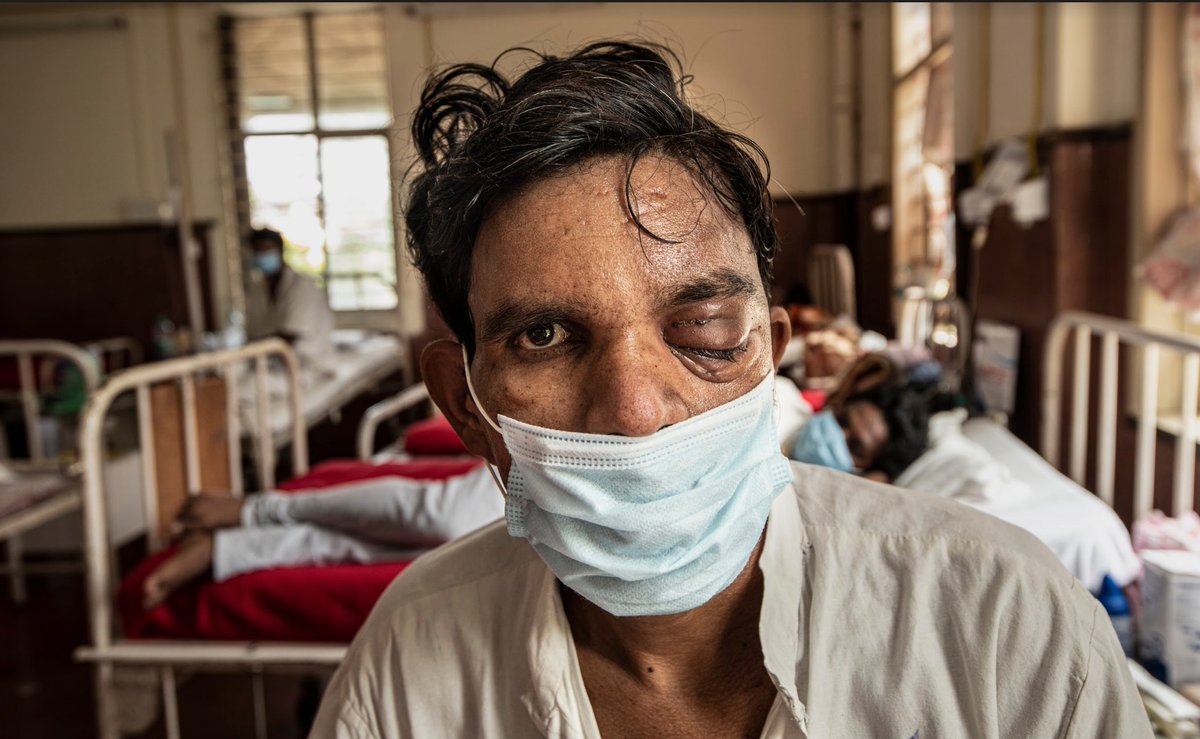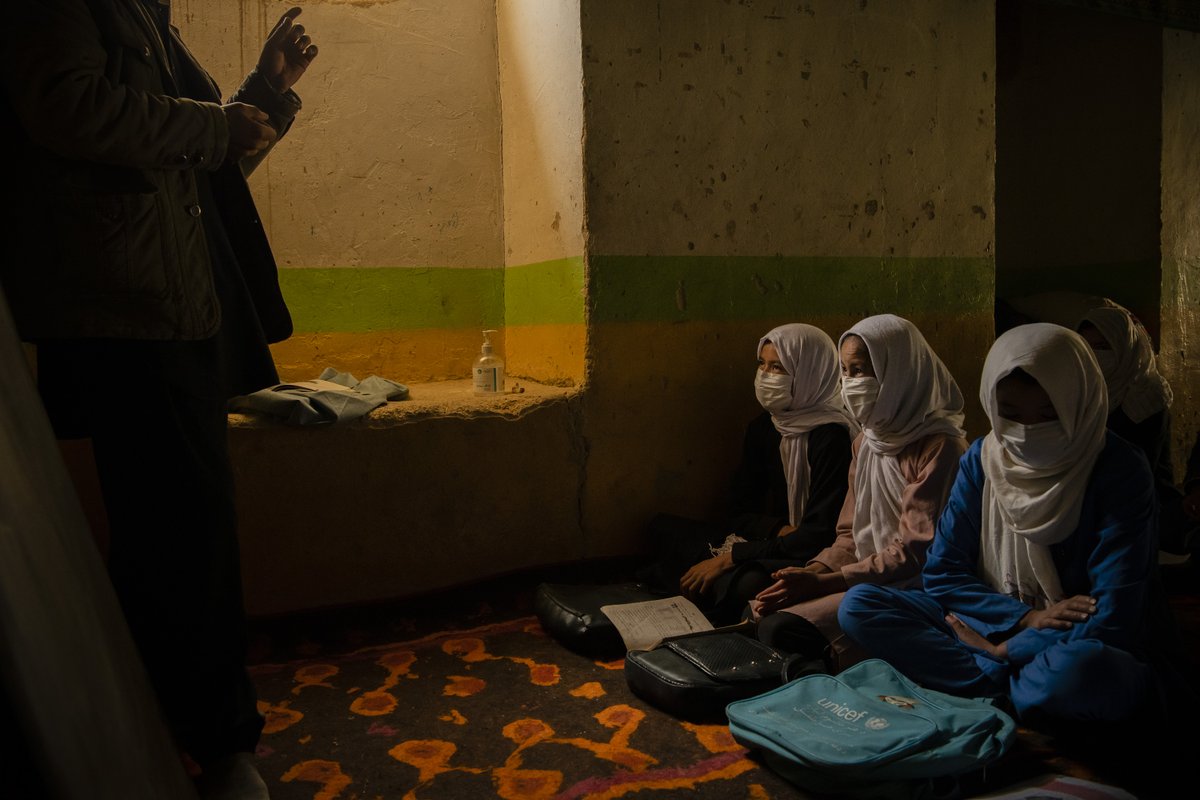
🚨The black fungus killing hundreds across India could be related to the country’s highly infectious coronavirus variant, specialists believe
Last week, @joerwallen visited ten hospitals across the western state of Maharashtra – this is what he found
telegraph.co.uk/global-health/…
Last week, @joerwallen visited ten hospitals across the western state of Maharashtra – this is what he found
telegraph.co.uk/global-health/…
The devastating “black fungus”, overwise known as mucormycosis, is a fast-moving, aggressive infection that attacks a person’s sinuses, lungs and brain and is deadly if not treated 

It is thought that the new strain, known as Delta or B.1.617, may be causing unprecedented damage to the pancreas of otherwise healthy people, triggering sudden onset diabetes and soaring blood glucose levels
This allows the deadly flesh-eating fungus to thrive
This allows the deadly flesh-eating fungus to thrive

In the Seven Star Hospital in the western city of Nagpur, ward after ward is filled to the brim with patients who had recovered from Covid-19 yet – despite being previously healthy – were hit by surging blood glucose levels and mucormycosis symptoms 

Vikram Trivedi is one of those patients. Five days ago, doctors removed his left eyeball, maxillary sinus and the roof of his mouth
The unthinkable was a necessary evil, to save his life from the aggressive, deadly flesh-eating fungal infection
The unthinkable was a necessary evil, to save his life from the aggressive, deadly flesh-eating fungal infection

“We never thought something like this would happen to Vikram.
“He did weight training and went jogging every day. He was in very good health,” says Ashwini Kadam, his distraught wife, in the ward’s counselling room
“He did weight training and went jogging every day. He was in very good health,” says Ashwini Kadam, his distraught wife, in the ward’s counselling room

Prior to March 1, there had been just 41 recorded cases of coronavirus induced mucormycosis worldwide.
But by May the Indian government had declared a nationwide epidemic after 11,000 Indians reportedly contracted the condition after recovering from Covid-19
But by May the Indian government had declared a nationwide epidemic after 11,000 Indians reportedly contracted the condition after recovering from Covid-19

The sudden explosion in cases was initially blamed on the overuse of steroids for Covid-19 – an effective but risky treatment that also suppresses the immune system.
However, Indian doctors are increasingly convinced the surge has been triggered by the country’s new variant
However, Indian doctors are increasingly convinced the surge has been triggered by the country’s new variant

Doctors at the Seven Star Hospital have witnessed the surge first hand. Prior to Covid-19, they would only see a couple of mucormycosis cases a year.
But since mid-March, Dr Shailesh Kothalkar, the hospital’s leading ear, nose, and throat surgeon, has treated over 280 patients
But since mid-March, Dr Shailesh Kothalkar, the hospital’s leading ear, nose, and throat surgeon, has treated over 280 patients

“This new variant is causing damage to the beta cells in the pancreas, which produce insulin and regulate blood glucose levels,” says Dr Kothalkar.
“We need more investigation into this… around 40% more patients are developing diabetes after having Covid-19”
“We need more investigation into this… around 40% more patients are developing diabetes after having Covid-19”

Internationally, some are currently sceptical about whether the variant is to blame and say more research is needed to understand the causal relationship between Delta, uncontrolled diabetes, mucormycosis and other potential side effects 

“The growing evidence suggesting that coronavirus might be triggering diabetes in some people is concerning, but there’s still a lot more to learn about whether coronavirus is directly causing new cases of diabetes,” said @Faye_285 of @DiabetesUK 

While the jury is out for now. Closer to home, concerns over the Delta variant are also growing.
On Thursday a @PHE_uk suggested the strain is more likely to lead to hospitalisations than the Alpha variant first detected in Kent
@joerwallen has more
telegraph.co.uk/global-health/…
On Thursday a @PHE_uk suggested the strain is more likely to lead to hospitalisations than the Alpha variant first detected in Kent
@joerwallen has more
telegraph.co.uk/global-health/…
• • •
Missing some Tweet in this thread? You can try to
force a refresh









